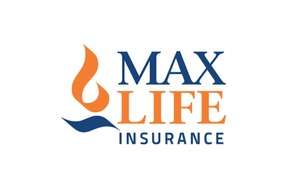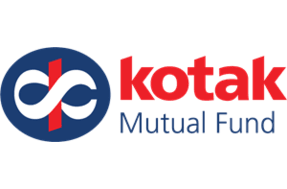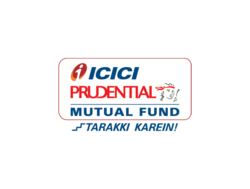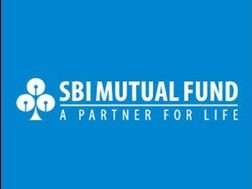Primarily, the revenue collected is utilized for the welfare of taxpayers; this means that the specific benefit received is independent of the individual payment. However, there are some exceptions, such as payroll taxes, where the taxpayer will directly benefit from medical coverage and retirement benefits.
Taxation patterns differ greatly among developing and developed countries. Higher tax revenues are collected in developed countries than in developing countries due to efficient taxation compliance mechanisms and effective tax collection methods.
However, both of these factors are directly affected by the competency of the political system. Generally, developed countries rely more on income taxation to realize most of their national output, more so than developing countries who rely heavily on consumption and trade taxes.
The following are the different types of levies imposed on residents by the government:
Income taxes are levies imposed on the total financial income of an individual, such as wages, investments, and salaries. Most income taxes increase with the rise in the taxpayer’s earnings. This means that higher-income earners pay more taxes than low-earners. This is also referred to as progressive taxation.
Corporate income tax is levied on business income. The burden of corporate tax is shared between the business, its consumers, and the employees through setting higher prices and paying low wages. To encourage business growth, most governments levy businesses a corporate tax rate of below 30%.
Capital gains taxes are levied on capital assets, which include personal properties and investments like stocks, homes, bonds, cars, or jewelry. When an asset increases in value, such as rising stock prices, it is referred to as capital gain.
Therefore, when an individual benefits from a capital gain, tax is paid on the profit earned.
Property taxes are generally imposed on physical property, such as land and buildings. They are the primary revenue source for local state governments. Property levies account for over 70% of local tax revenues. Property taxes finance key public services, such as fire departments, schools, roads, security, and rapid medical services.
Taxes are classified into different criteria ranging from the mode of payment, the subject bearing the tax burden, and the extent of shifting the burden.
Direct taxes are levies subjected to individuals based on the taxpayer’s net wealth, expenditure, or personal net income. Levies on net worth are based on the taxpayer’s assets value minus total liabilities, while expenditure taxes are paid on income that is not directed to savings.
Indirect taxes are taxes imposed on transactions such as imports and exports and the production and consumption of goods and services. Examples include value-added taxes, legal transaction taxes, manufacturing taxes, and custom taxes on import duties.
Give shape to your investments with our powerful tools & invest now.

Prioritize your financial goals with a customized financial plan!

















Taxation refers to the fees and financial obligations imposed by a government on its residents. Income taxes are paid in almost all countries around the world. However, taxation applies to all payments of mandatory levies, including on income, corporate, property, capital gains, sales, and inheritance.
Taxation is involuntary; hence it does not require consent from the residents. Therefore, the government may resort to the use of force and threats to implement successful taxation.
Yes, you are required to file your income tax return if your income exceeds Rs.
2,50,000 in a Financial Year i.e. the basic exemption limit without giving effects to any
type of deductions/investments.
E-Filing is mandatory in certain cases. For example, if your total income exceeds Rs.
5,00,000 p.a. or if you want to claim refund then you are compulsorily required to e-file
your Income Tax Return. It is a much simpler process than filing a paper return and
also your refunds are processed faster if your return has been E-Filed.
Exempt Incomes are not chargeable to tax as per Income Tax law i.e. they are not
included in the total income for the purpose of tax calculation while Taxable Incomes
are chargeable to tax under the Income Tax law.
No, you don’t have to attach any document along with your income tax return. You are
required to submit documents only when the Income Tax Department asks you to
submit.
E-filing your income tax return is faster, secure and simpler than filing offline. As the
returns are filed online, they are processed by the systems automatically and,
therefore, the refunds are issued faster. Moreover, it is now mandatory to file your
income tax return online if your income exceeds Rs. 5,00,000 in a financial year or if
you want to claim the refund.
Your employer gives you Form-16 as a certificate of total TDS deducted from salary.
Details of TDS deducted and the details of salary, allowances & deductions are
mentioned in Form-16.However the details of deductions mentioned are subject to the
proof of deductions submitted by you to your employer. Hence real computation may
change from the computation mentioned in Form-16.
It is given at the end of year and helps you file your income tax return. Remember
Form-16 is not an alternative for Income Tax Return. Filing Income tax return is
mandatory even if correct TDS has been deducted as per Form—16.
The bank from which you receive your pension income will issue your Form 16.
Full form of PAN is Permanent Account Number which is a 10 digit alpha numeric
identification which is issued to each tax payer by the Income Tax Department.
Full form of TAN is Tax Deduction Number which is a 10 digit alpha numeric number
allotted to those who are liable to deduct TDS by the Income Tax Department.
Schedule If You Want To Have a Tailor-Made Customized Plane.


Made with ❤️ Fadwrap